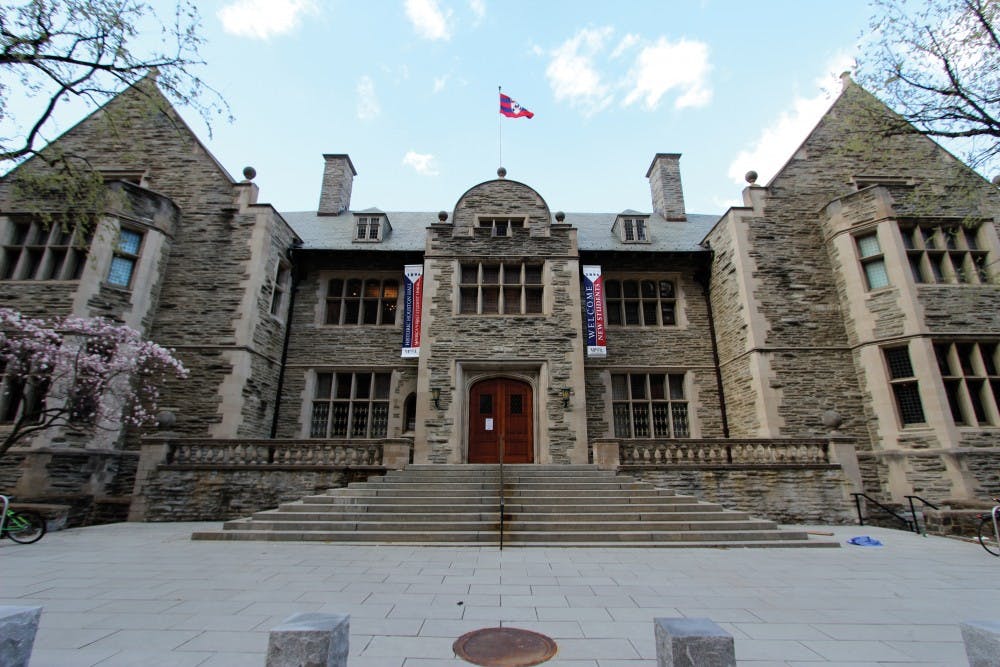
On Thursday night, the Nominations and Elections Committee emailed candidates running in the New Student Elections for positions in the Undergraduate Assembly and Class Board 2020 to inform them that results would not be released on time.
There were two charges of violations of the Fair Practices Code, the regulatory document that governs student government elections.
Originally, election results were supposed to be released at 9 p.m. on Thursday after a voting period that ran from Monday midnight till 5 p.m. on Thursday. After voting closed, candidates had a two-hour window to turn in their spending forms and submit any FPC complaints to the NEC.
Now that charges have been filed, the results of the elections will be delayed until the conclusion of a public Fair Practices Code hearing, which will be held this Saturday at 10 a.m. in Huntsman Hall room G50 and is open to the public.
The first charge was filed by College freshman Matthew Schnitzer against Engineering freshman Jack Talley. Both are running for Class Board President.
Schnitzer alleged that Talley posted campaign material in the Class of 2020 Official Facebook Page, violating the FPC, which states that “candidates may not contact students through any university-sponsored, created, or managed social networking group designated as class-wide, school-wide/class-wide, or interdisciplinary program-wide listservs”.
The FPC also states that all candidates are responsible for the actions of their surrogates — people who campaign on their behalf — and that they too must comply with the code. Schnizter also alleged that Talley’s surrogates posted material referencing his campaign in their class Facebook group, and that Talley acknowledged these posts online.
Talley argues that these allegations are “totally and entirely baseless”.
“You look at the FPC and it’s clear that I did not violate the FPC as an official candidate for office,” he said. “These charges are not valid…and I am disappointed to see people attacking each other like this."
Despite his disappointment, Talley believes that "the NEC is taking the due process actions very responsibly" and that "justice and the right decision will come out."
The second charge is made by the NEC against College freshman Connor Wright. Similar to the first case, the NEC alleged that Wright “indirectly campaigned by posting images” in the Class of 2020 Official Facebook Page and “did not immediately do that which is in his power to remove campaign information related to the post.”
Wright denies these charges.
"I did not, nor did any of my surrogates, campaign on my presidency in any of the official Facebook groups and I'll prove that tomorrow morning at 10 a.m.," he said.
At the hearing on Saturday, Schnitzer and the NEC will present charges while Talley and Wright defend themselves by presenting their cases, submitting evidence and calling on witnesses as necessary.
"I filed my charges because I think the rules are the rules for a reason," Schnitzer said. "Two-thirds of the candidate pool for president didn't break the rules and didn't put themselves in this situation and if the election turned out that one of these two kids won, I would feel that there was an unfair advantage."
The whole NEC body will be at the hearing to deliberate and will release the election results of all the different positions afterward, unless they find that the election was biased as a result of these charges. The NEC would then rerun the election for the Class Board President position.
The last time charges of violations of the FPC were made was during the spring 2014 election. College junior and Vice Chair for Elections Allie Rubin explained that “what usually happens is that, if there are small violations, we try to mitigate them as soon as possible by reaching out to candidates and fixing it immediately so it doesn’t reach this point”.
The NEC did not have access to the Class of 2020 Facebook page and “no one reached out to me until now," Rubin said.
“To ensure fairness, I want everyone to go in to the hearing with a blank slate to make sure deliberations are as unbiased as possible”.
This article was last updated at 6:30 p.m. Check back for updates.
The Daily Pennsylvanian is an independent, student-run newspaper. Please consider making a donation to support the coverage that shapes the University. Your generosity ensures a future of strong journalism at Penn.
DonatePlease note All comments are eligible for publication in The Daily Pennsylvanian.





